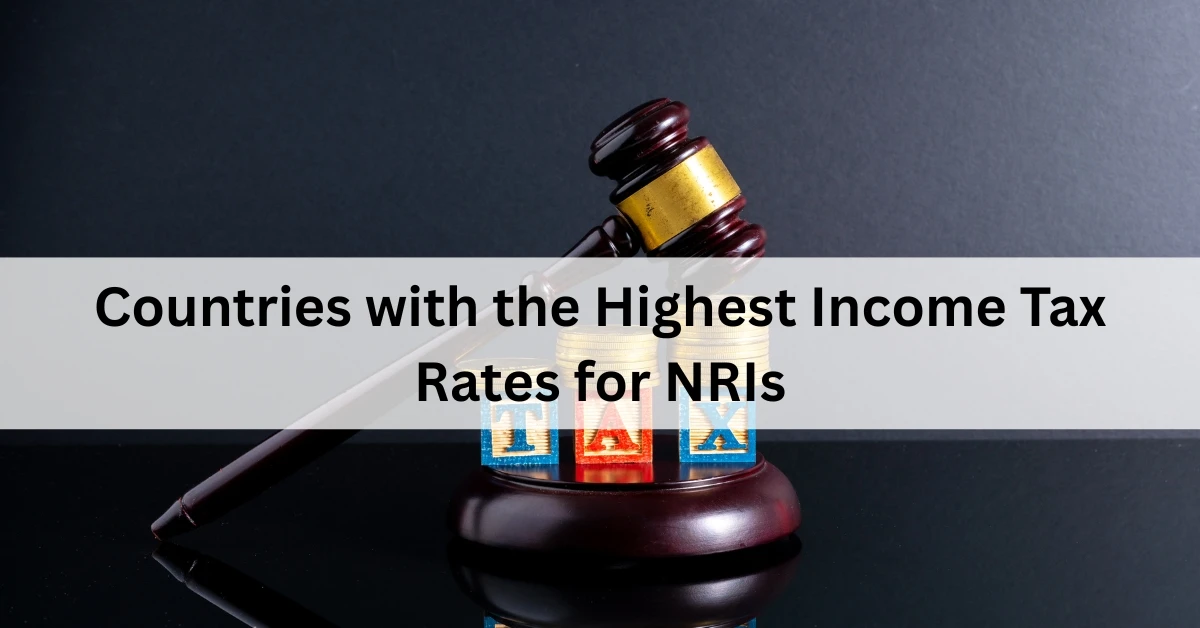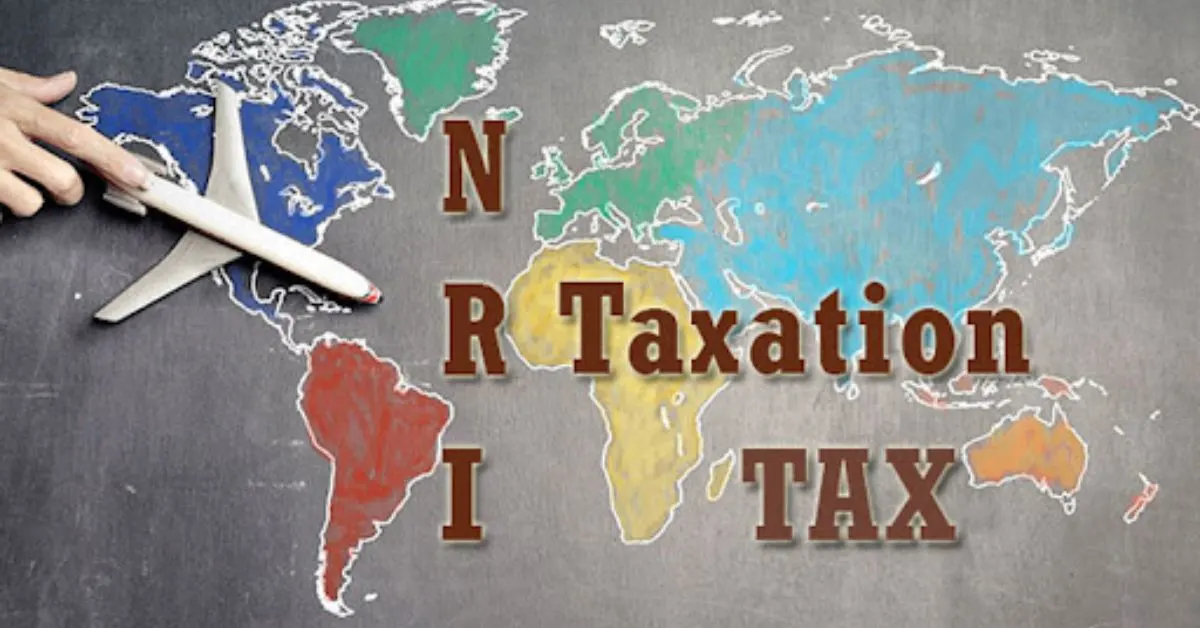Remitforex – The Money Transfer Expert
Remitforex – The Money Transfer Expert





Globalization greatly impacts career paths for many Non-Resident Indians (NRIs). As a result, they often need to deal with complex tax rules in their countries of residence. It’s important for NRIs to understand these tax obligations because income tax rates can significantly affect their financial planning and net income.
Before delving into specific countries, it’s essential to comprehend the concept of tax residency. Tax residency determines an individual’s obligation to pay taxes in a particular country. While the criteria vary by jurisdiction, common factors include the number of days spent in the country, ties such as property ownership, and the center of vital interests. NRIs must be aware of these criteria to avoid unintended tax liabilities.
Denmark imposes a top personal income tax rate of 55.9%, the highest among European OECD countries. This rate applies to high-income earners and reflects Denmark’s commitment to a comprehensive welfare system funded by substantial tax revenues.
France’s top personal income tax rate stands at 55.4%. High-income earners, including NRIs, are subject to this rate on income exceeding specific thresholds. France’s tax system is progressive, with rates increasing with income levels.
Austria levies a top income tax rate of 55% on its highest earners. Notably, there are plans to reduce this rate to 50% by 2026, potentially easing the tax burden for future high-income residents.
Japan imposes a top income tax rate of 55.95% on individuals earning over 40 million yen. This rate comprises a 45% national income tax, a 10% local income tax, and a 2.1% surtax on the national income tax.
Finland has a top income tax rate of 56.4%, applicable to incomes over €1 million. This high rate reflects Finland’s extensive public services and social welfare programs.
Sweden imposes a top personal income tax rate of 52.3%. This rate includes both national and municipal taxes, contributing to Sweden’s robust social welfare system.
In Belgium, the maximum personal income tax rate is 53.5%. This rate applies uniformly to both citizens and foreign nationals residing and earning within the country.
The Netherlands has a top income tax rate of 49.5%, applicable to incomes over €73,031. This progressive tax system funds various public services and social programs.
Portugal’s top marginal income tax rate is 53%. The country also levies capital gains, inheritance, and real estate taxes. Despite the high-income tax rate, Portugal’s thriving real estate market and favorable investment climate attract many expatriates.
Spain’s top personal income tax rate is 54%. However, the country offers a special tax regime for expatriates, commonly known as the “Beckham Law,” which allows qualifying individuals to be taxed at a flat rate on Spanish-source income, potentially offering tax savings for a limited period.
While high-income tax rates can be daunting, many countries offer special tax regimes or incentives to attract foreign professionals and investors. For instance:
Many countries have high taxes to support their social programs. In Scandinavia, taxes pay for universal healthcare, free university education, childcare, good unemployment benefits, and many public services. These programs are based on the idea of equality, where wealthy people pay more to help reduce income differences.
For NRIs, especially those who are temporarily living abroad or just starting to build their wealth, high taxes may not bring equal benefits. For example, if you stay for a short time or don’t have a permanent job, you might not be eligible for pension plans or complete social security.
India has signed Double Taxation Avoidance Agreements with over 90 countries, which is a significant advantage for NRIs. These agreements ensure that the same income is not taxed twice—once in India and once in the country of residence.
Depending on the treaty, you may:
It is vital for NRIs to declare global income properly and maintain documentation such as tax residency certificates, foreign income proofs, and withholding tax details to claim DTAA benefits.
As an NRI navigating complex international tax systems, remittances, and financial obligations, having a trusted partner like Unimoni makes a world of difference. Whether you’re living in a high-tax country or planning your return to India, Unimoni offers a wide array of services tailored to support your global lifestyle and financial needs.
NRE and NRO Repatriation
Managing funds between India and your country of residence is crucial, especially for NRIs earning in foreign currencies. Unimoni facilitates smooth and compliant repatriation of funds from both NRE (Non-Resident External) and NRO (Non-Resident Ordinary) accounts—helping you transfer earnings, savings, and rental income seamlessly across borders.
Foreign Currency Exchange
Unimoni offers competitive currency exchange rates for all major global currencies. With 300+ branches and 15,000+ agent locations, you can access reliable forex services anywhere in India.
Outward Remittance Services
Unimoni simplifies outward remittance through proper RBI-compliant channels for a wide range of purposes:
Forex Cards
For NRIs and international travelers, Unimoni offers forex cards—a safer, smarter alternative to carrying cash. These cards are widely accepted and easy to reload, offering flexibility and better control over your spending.
Passport and PAN Card Assistance
Need help with getting or renewing your passport and PAN card? Unimoni offers end-to-end assistance.
Visa Assistance and Document Attestation
Our visa experts guide you through the entire visa process. We also provide document attestation services for educational, professional, and personal documents, helping you meet legal requirements abroad.
Flight Ticket and Hotel Booking
Unimoni offers affordable and flexible air ticketing services, including both domestic and international flights. Our tie-ups with global hotel chains and booking platforms also allow us to assist with hotel reservations at competitive prices, no matter where you’re headed.
Travel Insurance
Protect your journey with Unimoni’s comprehensive travel insurance solutions. We provide coverage for trip delays, medical emergencies, lost baggage, and more—making sure you’re financially secure while traveling internationally.
Customized Tour Packages
Looking to explore the world? Unimoni curates personalized international and domestic tour packages tailored to your preferences and budget. From luxurious getaways to pilgrimage tours and adventure holidays, we make every trip memorable.
Contact us to know more.

